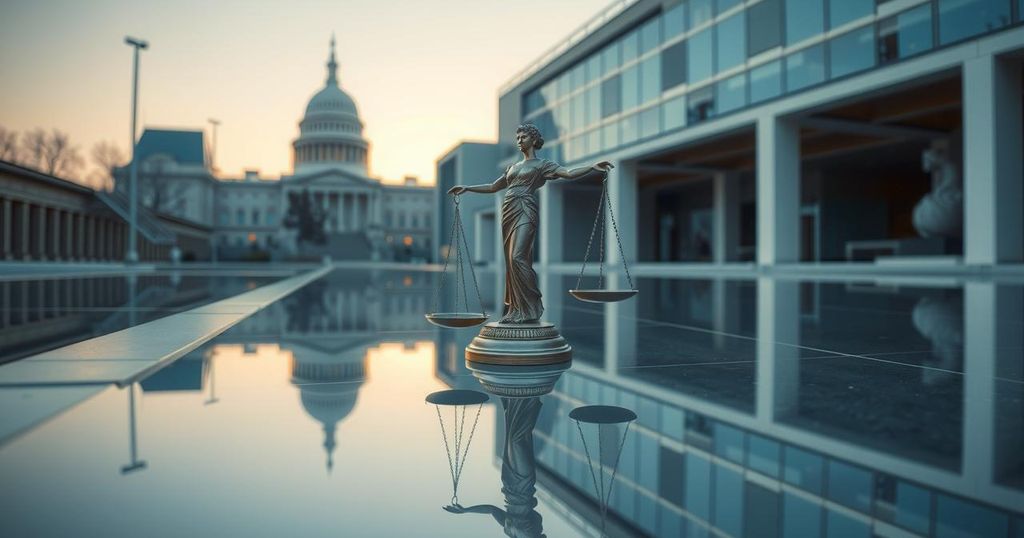Brazil, in a significant move to protect democracy, charged former President Jair Bolsonaro for attempting a coup, reflecting a starkly different institutional response compared to the U.S.’s reactions to Trump’s actions following January 6. The Brazilian government acted promptly, ruling Bolsonaro ineligible for office until 2030, while U.S. institutions have been criticized for their lack of decisiveness and clarity in dealing with Trump’s alleged abuses of power.
Recently, Brazilian prosecutors formally charged former President Jair Bolsonaro and 33 others with attempting to overturn Brazil’s democracy after the October 2022 elections. This move can be compared to the U.S. political landscape, where Bolsonaro sought counsel from individuals close to Donald Trump regarding election denial. However, the scale of Bolsonaro’s actions appears more drastic, involving military officers and alleged murder plots against political adversaries, indicating a far broader coup attempt than anything witnessed in the U.S. following the January 6 events.
The institutional responses of Brazil and the United States to these threats to democracy starkly differ. In Brazil, the Supreme Electoral Court quickly ruled Bolsonaro ineligible for office until 2030, addressing the dangers posed by his actions. In contrast, U.S. institutions are perceived as hesitating, as evidenced by the Colorado case where the Supreme Court allowed Trump to remain on the primary ballot despite his alleged role in January 6.
Reflecting on past events, similarities arise with Venezuela’s experience in 1999 when the Supreme Court capitulated to Hugo Chávez. The resignation of Chief Justice Cecilia Sosa illustrated the dire consequences of failing to defend democracy, as institutions succumb to coercion in both cases. Brazil’s swift judicial response to Bolsonaro showcases the imperative of holding leaders accountable, unlike the protracted legal battles in the U.S.
Brazil’s prosecutors delivered clear charges against Bolsonaro without bureaucratic complexities. Attorney General Paulo Gonet charged him with attempting a coup, highlighting abuses of power that threaten democratic institutions. This contrasts sharply with the U.S. case against Trump, where charges lacked clarity and urgency, reflecting a cautious prosecutorial approach that can undermine accountability and the public’s trust in electing capable leaders.
Brazil’s ability to respond promptly to threats against democracy has been notable, particularly when considering its relatively recent transition to democracy in the 1980s. In Brazil, the scars from past dictatorships loom large, invoking a visceral commitment from citizens to defend their democratic rights. This contrasts with the United States, where historical experiences of dictatorship are less pronounced, potentially leading to a diminished sense of urgency in safeguarding democratic values.
Brazil exemplifies how democracies can robustly defend themselves against autocratic threats, contrasting sharply with the United States’ more subdued institutional response. America’s democracy could benefit from adopting similar resolute and prompt measures when confronting threats posed by political leaders.
Brazil’s recent legal actions against former President Jair Bolsonaro highlight a decisive institutional response to threats against democracy, contrasting sharply with the more hesitant approach of U.S. authorities toward Donald Trump’s actions. This difference underlines the necessity of swift accountability and judicial assertiveness in safeguarding democratic norms, especially in nations that have recently emerged from periods of autocratic rule. The urgency for proactive measures is crucial to preserving democratic integrity in the face of rising populism.
Original Source: www.theatlantic.com




